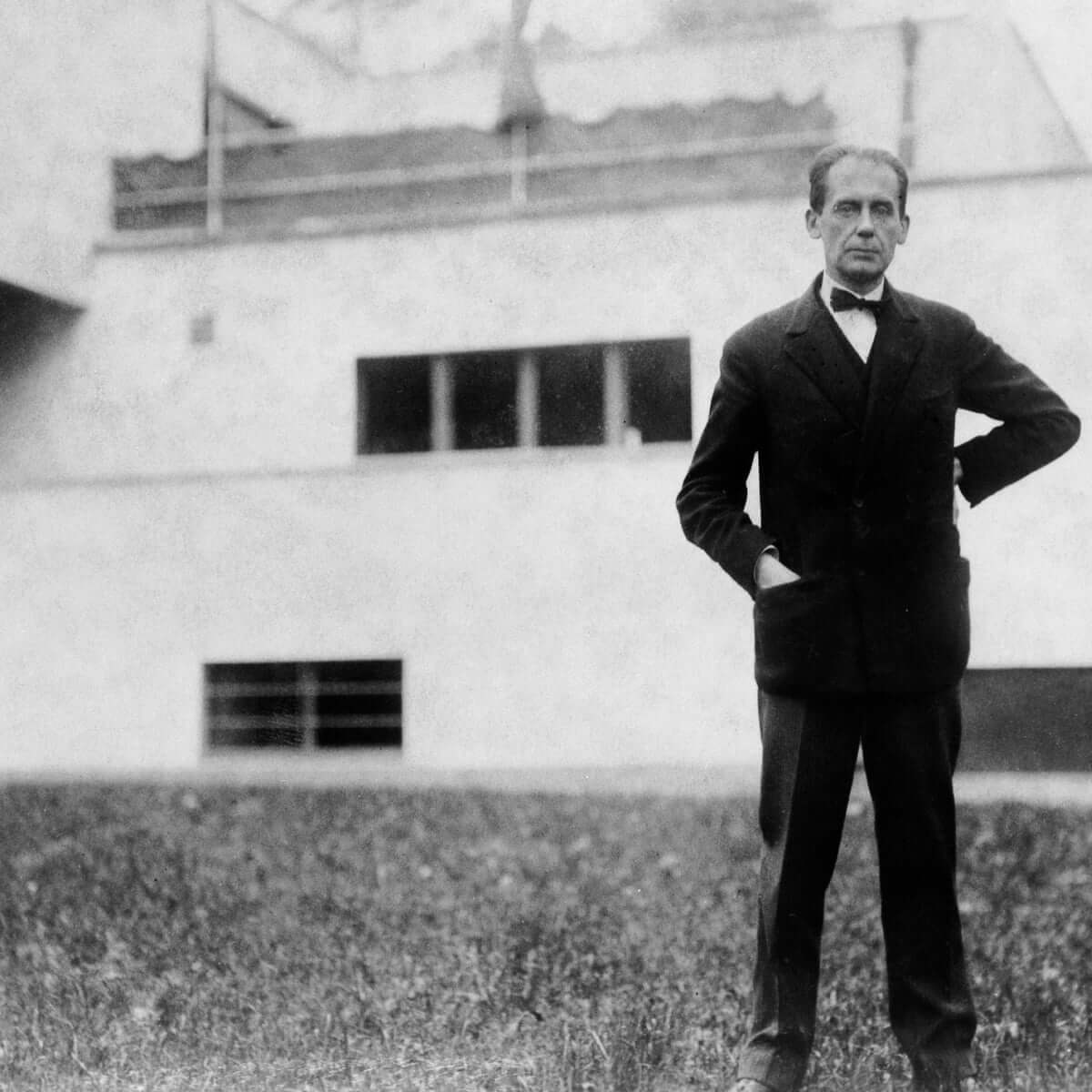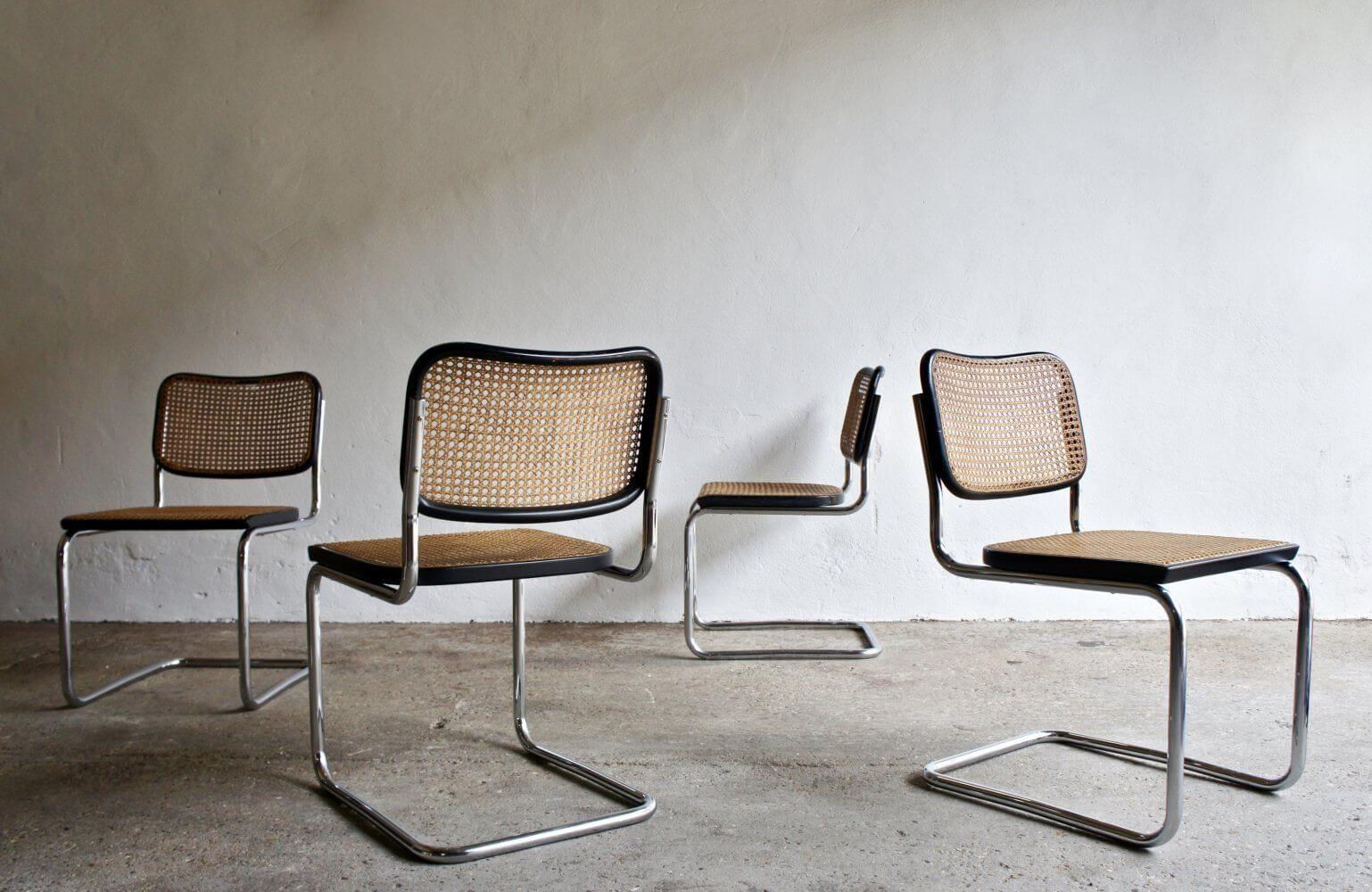Our world would look a lot different without the Bauhaus. From sleek modernist buildings to advertisements on subways, it’s hard to avoid seeing the influence of the Bauhaus art movement in everyday life. So how did a small art school in Germany have such an outsized effect on the appearance of our modern world? And what, exactly, was that effect?
What Is Bauhaus Painting?
The Bauhaus art movement
Bauhaus in German literally means “construction house,” and in a way, that’s really all it started out as. But very quickly, the space turned into a larger movement, defined by clear aesthetic trademarks. For more, check out our index of art styles covering more specific and noteworthy movements.
So, what is Bauhaus?
BAUHAUS DEFINITION
What is Bauhaus?
The Bauhaus is a German artistic movement which lasted from 1919-1933. Its goal was to merge all artistic mediums into one unified approach, that of combining an individual’s artistry with mass production and function. Bauhaus design is often abstract, angular, and geometric, with little ornamentation.
Famous Bauhaus Design Figures:
- Walter Gropius
- Paul Klee
- Josef Albers
- Marcel Breuer
- Anni Albers
- Herbert Bayer
- Marianne Brandt
Now that we have a working definition for the movement, let’s look at how it came to be.
What Is Bauhaus Architecture?
History of the Bauhaus
The Bauhaus art movement was founded in 1919 in Weimar, Germany by the architect Walter Gropius. His goal was to lead a school that approached art comprehensively. Instead of having one school for painting, another for sculpture, and another for architecture, Gropius wanted to bring all of these media under the same roof so that they could inform each other.

Walter Gropius, who founded Bauhaus
“Our guiding principle was that design is neither an intellectual nor a material affair, but simply an integral part of the stuff of life, necessary for everyone in a civilized society.”
— Walter Gropius on what is Bauhaus
In 1925, the Weimar school was forced to close and move to Dessau. While it was in Weimar where the radical approach to artistry was defined, it was in Dessau where the Bauhaus style as we know it today really came to be.
While Gropius didn’t set out to create a distinct aesthetic brand — he was more interested in the process of how the art was created — his school’s approach resulted in a specific style. The emphasis on mass-produced function made most works out of the Bauhaus design school abstract, modernist, and without excessive decoration.

Bauhaus architecture examples
While the school's principles grew more pronounced and distinct, the forms it took remained varied. This included artists working in typography, architecture, woodworking, set design, painting, and much more who all studied under the Bauhaus art movement roof.
By 1932, the movement had gained lots of attention. But instead of being able to capitalize on its burgeoning popularity, the school found itself beleaguered by the new Nazi government of Germany. The school briefly relocated to Berlin, but in 1933 the school was forced to close its doors.
Its impact had already grown beyond its physical campus. This video also gives a great brief history of the school and movement:
Bauhaus design explained
Even though it lasted for less than fifteen years, the movement produced a long list of well-known and influential artists.
Related Posts
What is Bauhaus Art Movement?
Famous Bauhaus Artists
The Bauhaus art movement comprised countless creators who massively influenced their respective fields. Let’s take a look at some of the biggest names to come out of the school.
Walter Gropius
As the founder of the Bauhaus, Gropius is considered one of the most influential figures in this style of architecture. Gropius was a firm believer in the function of architecture, renouncing references to previous styles or ornamentation. His buildings, therefore, are highly modernist, geometric, and minimalist, encapsulating the Bauhaus design.

A building designed by Walter Gropius
Marcel Breuer
Marcel Breuer was one of the first, and youngest, Bauhaus artists. His career focused in architecture and furniture design (his Cesca Chair is especially famous). His architecture is slightly more brutalist than that of Gropius, but the influence the movement had on him is evident in all of his work.

The Cesca chair, designed by Marcel Breuer
Paul Klee
Paul Klee was a painter whose work utilized Cubism, Surrealism, and Modernism. He was key in developing the aesthetic of the Bauhaus movement artwork, working as a teacher at the school and writing one of the most important pieces of theory in the modern art movement: Writings on Form and Design Theory.

Senecio, by Paul Klee (1922)
Anni Albers
Anni Albers was a textile artist who spearheaded the movement's ideals of mixing function and art. Her textiles also utilize the geometric and modernist designs associated with the movement.

A tapestry by Anni Albers
Related Posts
Cinematic Influence
Bauhaus in Film
Because the Bauhaus stressed the confluence of media under one roof, it’s no surprise that the style reached into film, itself an amalgamation of art forms (music, performance, photography, design, etc.).
The most immediate and obvious influence the movement had on film can be seen in production design. The sharp, geometric Bauhaus architecture is key to much of the set design in the German Expressionist movement. Take, for example, the German Expressionist crown jewel The Cabinet of Dr. Caligari:

Still from The Cabinet of Dr. Caligari
The seminal film of 1920 shows the beginning of the Bauhaus’s cinematic influence. Sharp corners, minimal decoration: all can be found in Dr. Caligari.
This type of modernist set design with clear Bauhaus strains proliferated through the 1920’s. Fritz Lang’s Metropolis (1927) also utilizes the movement's architectural approach:

Bauhaus in Metropolis
By the 1960s, the Bauhaus was so ingrained in culture that satirical director Jacques Tati poked fun at the style in his 1967 film Playtime.

Playtime and Bauhaus Influence
The chairs, the minimalist sleek design — by the 1960s, the style had become synonymous with modernism.
Related Posts
Bauhaus Painting
The Bauhaus Influence
It’s hard to overstate the legacy of the Bauhaus. The style and approach of the German school still influences artists, designers, and architects to this day. This video discusses the movement’s influence 100 years after its birth:
The Bauhaus legacy and effects
Many of the artists and teachers at the Bauhaus had to flee Germany due to Nazi oppression. But their methods and pedagogy spread like wildfire all over the world throughout the 20th century. Walter Gropius went on to teach at Harvard; Anni Albers (and her husband Josef) moved to North Carolina to teach at Black Mountain College and had work featured at MoMA.
Although the school closed in 1933, its teachings are sprinkled over the globe, and to this day the Bauhaus style lives on, marrying art and function in everything from furniture to graphic design.
UP NEXT
Explore More Styles and Movements
This was just one of many fascinating segments of art history. There are many eras, styles, artists, and movements to discover. Let's continue our study by choosing the next stop on your way to becoming an art aficionado. Below you can visit our Art Styles Index, our Art History Timeline, or choose an individual movement.
Showcase your vision with elegant shot lists and storyboards.
Create robust and customizable shot lists. Upload images to make storyboards and slideshows.
